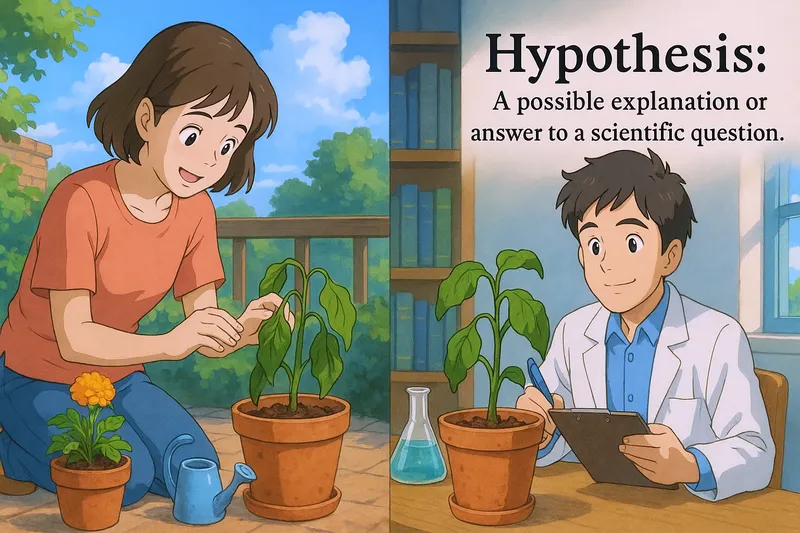Hypothesis
Hypothesis Meaning:

Imagine trying to figure out why your favorite plant is wilting despite regular watering. This situation mirrors how scientists approach forming a hypothesis, which is essentially a possible explanation or answer to a scientific question. Just as you might consider various reasons for the wilting—like too much sun, a pest infestation, or poor soil quality—a scientist proposes a hypothesis to explain an observed phenomenon, testing each possibility to find the right solution.

Practice Version

Hypothesis: A possible explanation or answer to a scientific question. Hypothesis. In history, a hypothesis is like a guess historians make to explain why something happened in the past.
